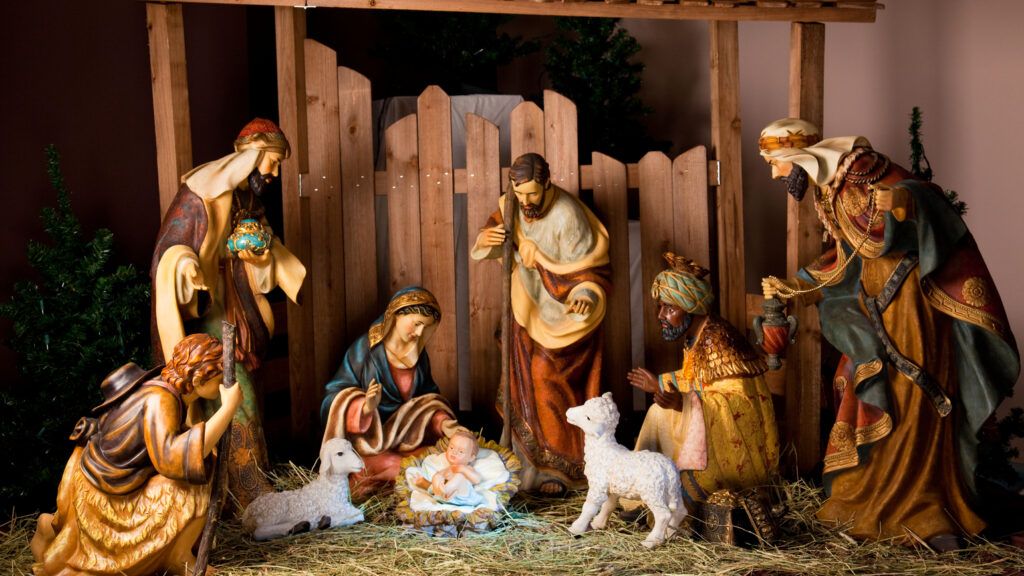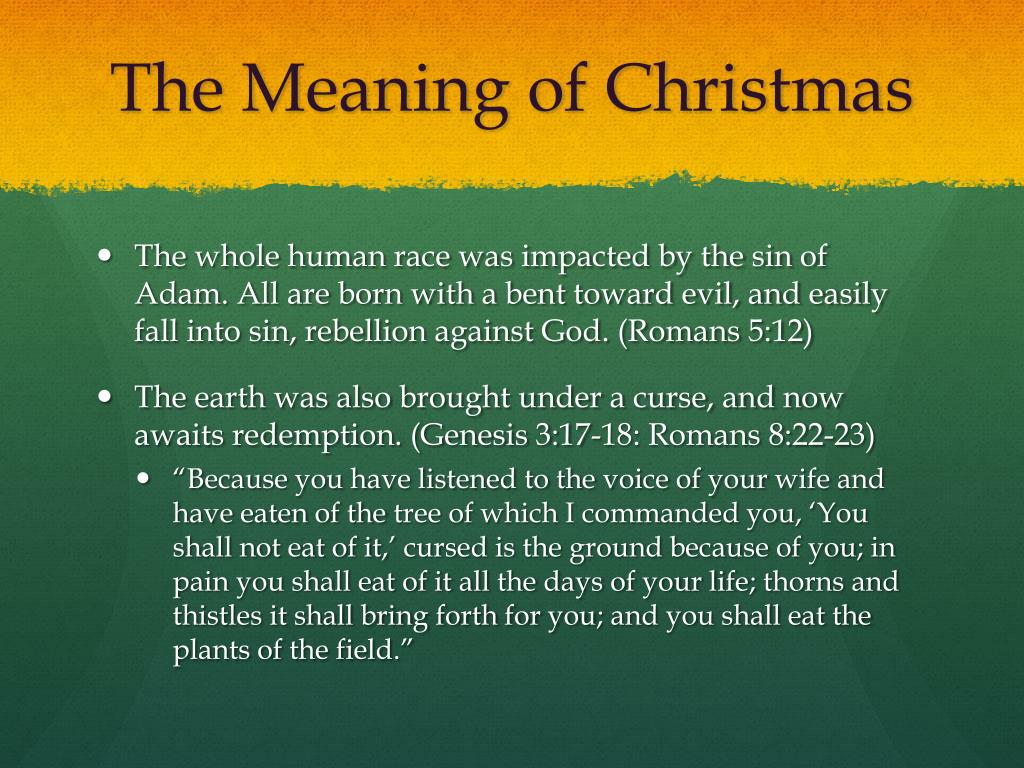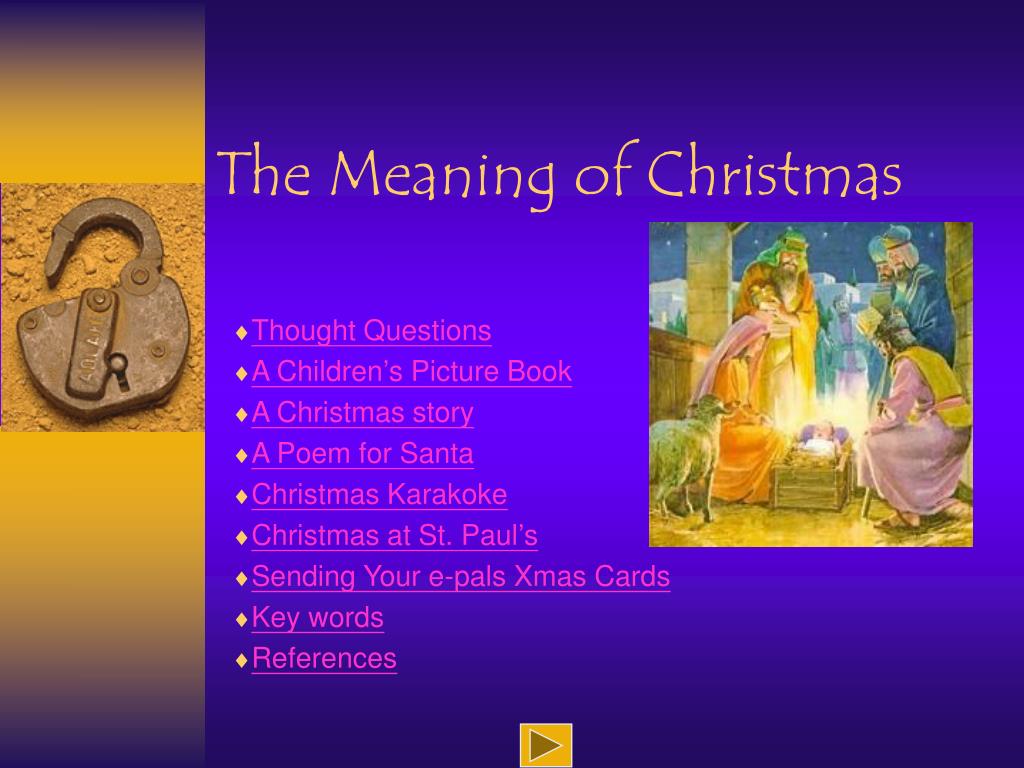The Etymology And Significance Of "Christmas"
The Etymology and Significance of "Christmas"
Related Articles: The Etymology and Significance of "Christmas"
Introduction
With great pleasure, we will explore the intriguing topic related to The Etymology and Significance of "Christmas". Let’s weave interesting information and offer fresh perspectives to the readers.
Table of Content
The Etymology and Significance of "Christmas"

The word "Christmas" holds a unique place in the global lexicon, representing a celebration deeply rooted in history and tradition. Understanding its origins and evolution reveals a fascinating journey of linguistic transformation and cultural adaptation.
A Blend of Ancient and Modern:
The word "Christmas" is a relatively recent invention, originating in the Middle English period. It is a compound word, formed from the Old English words "Cristes" (Christ’s) and "mæsse" (Mass), which is a religious service. This combination reflects the core meaning of the holiday – a celebration of the birth of Jesus Christ.
Early Roots in Germanic and Latin:
The term "mæsse" itself has roots in the Proto-Germanic word "mēssa," signifying "a religious assembly" or "gathering." This term eventually evolved into the Old English "mæsse," signifying a religious service, particularly the Mass. This linguistic connection highlights the early association of the celebration with religious gatherings and observances.
The Evolution of "Christmas" in English:
The earliest recorded use of "Christmas" in English dates back to the 11th century. However, the word did not become widely used until the 14th century. Prior to that, the holiday was referred to as "Christ’s Mass" or "the Nativity of Our Lord." The adoption of "Christmas" as the standard term for the holiday reflects the increasing importance of the celebration in English culture.
Beyond the English Language:
While "Christmas" is the most common term for the holiday in English, other languages have adopted their own variations based on similar linguistic roots. For instance, in German, the holiday is known as "Weihnachten," which translates to "Holy Night." In French, it is "Noël," derived from the Latin "natalis," meaning "birth." These variations highlight the international reach of the celebration and the diverse linguistic expressions of its significance.
The Meaning Beyond the Word:
The word "Christmas" serves as a powerful symbol, encapsulating the multifaceted nature of the holiday. It represents a time for:
- Religious Observance: The birth of Jesus Christ is the central event celebrated on Christmas, marking a significant moment in Christian faith.
- Family and Community: Christmas is often associated with gatherings of loved ones, sharing meals, exchanging gifts, and fostering a sense of togetherness.
- Joy and Generosity: The holiday is traditionally characterized by festive cheer, acts of kindness, and a spirit of giving.
- Cultural Traditions: Christmas traditions vary widely across cultures, encompassing everything from decorating trees and singing carols to enjoying specific foods and participating in unique customs.
The Enduring Significance of Christmas:
Despite its relatively recent origin, the word "Christmas" has become deeply embedded in global culture. It evokes a wide range of emotions, memories, and traditions, transcending religious and cultural boundaries. The holiday continues to hold immense significance for individuals and communities worldwide, serving as a time for reflection, celebration, and connection.
FAQs on the Origin and Meaning of "Christmas"
1. Is "Christmas" a religious holiday?
Yes, Christmas is primarily a religious holiday celebrating the birth of Jesus Christ. However, it has also become a secular holiday celebrated by many individuals and families who may not be religiously affiliated.
2. What is the significance of the word "mæsse" in "Christmas"?
"Mæsse" refers to a religious service, specifically the Mass, which is a central part of Catholic worship. The inclusion of "mæsse" in "Christmas" highlights the historical and religious context of the celebration.
3. When did the word "Christmas" first appear in English?
The earliest recorded use of "Christmas" in English dates back to the 11th century. However, it did not become widely used until the 14th century.
4. Why is the holiday called "Noël" in French?
"Noël" is derived from the Latin word "natalis," meaning "birth." This reflects the central theme of the holiday, which is the birth of Jesus Christ.
5. What are some of the cultural traditions associated with Christmas?
Christmas traditions vary widely across cultures, but some common elements include decorating trees, singing carols, exchanging gifts, enjoying festive meals, and participating in unique customs specific to different regions.
6. What is the significance of Christmas beyond its religious origins?
Christmas has become a secular holiday celebrated by many people worldwide. It is often associated with family gatherings, sharing meals, exchanging gifts, and spreading joy and generosity.
7. How has the meaning of Christmas evolved over time?
While the core meaning of celebrating the birth of Jesus Christ remains central, the cultural and social significance of Christmas has evolved to encompass a broader range of traditions and celebrations.
8. What is the importance of understanding the etymology of "Christmas"?
Understanding the etymology of "Christmas" provides insights into the historical and linguistic evolution of the holiday, revealing its deep roots in religious and cultural traditions. It also helps to appreciate the multifaceted nature of the word and its enduring significance in global culture.
Tips for Understanding and Appreciating Christmas
- Explore the historical context: Research the origins of Christmas and its evolution as a religious and cultural celebration.
- Learn about different cultural traditions: Discover the unique customs and practices associated with Christmas around the world.
- Engage in meaningful conversations: Discuss the significance of Christmas with family and friends, fostering a deeper understanding and appreciation of the holiday.
- Practice acts of kindness and generosity: Embrace the spirit of giving by volunteering, donating to charities, or simply offering a helping hand.
- Reflect on the true meaning of the holiday: Take time to reflect on the values and principles that Christmas represents, such as love, peace, and compassion.
Conclusion
The word "Christmas" holds a profound significance in the world, encapsulating a complex tapestry of religious, cultural, and social traditions. Its etymology and evolution reveal a fascinating journey of linguistic transformation and cultural adaptation. Understanding the origins and meaning of "Christmas" provides a deeper appreciation for the holiday’s enduring importance and its continued ability to connect individuals and communities worldwide.








Closure
Thus, we hope this article has provided valuable insights into The Etymology and Significance of "Christmas". We thank you for taking the time to read this article. See you in our next article!
Leave a Reply